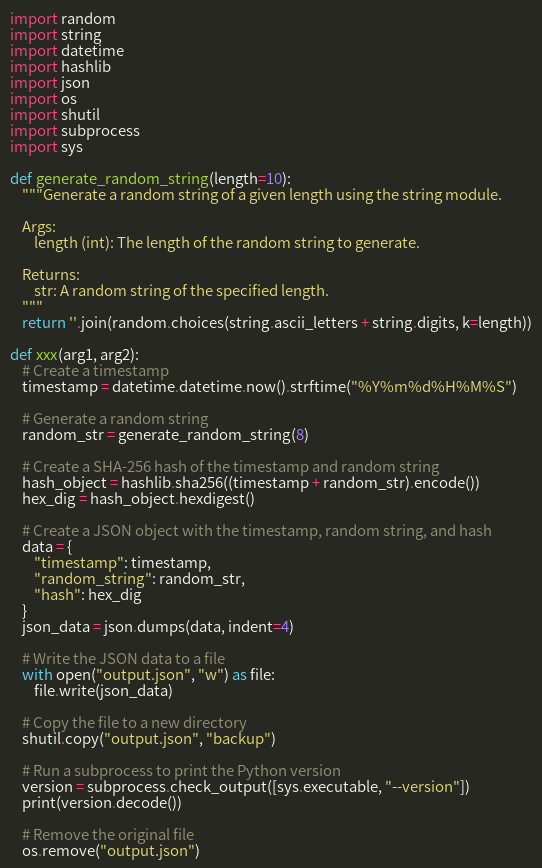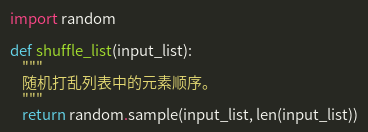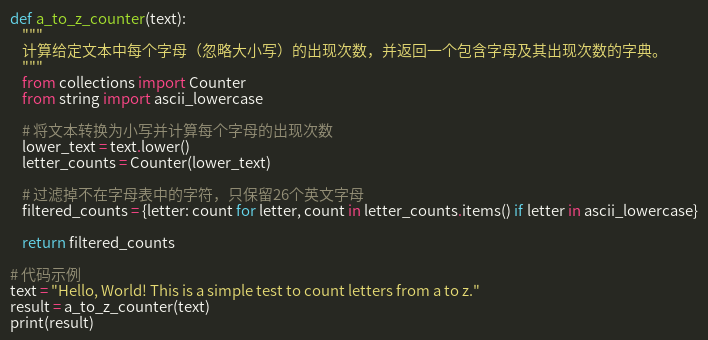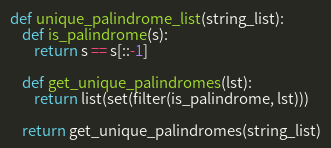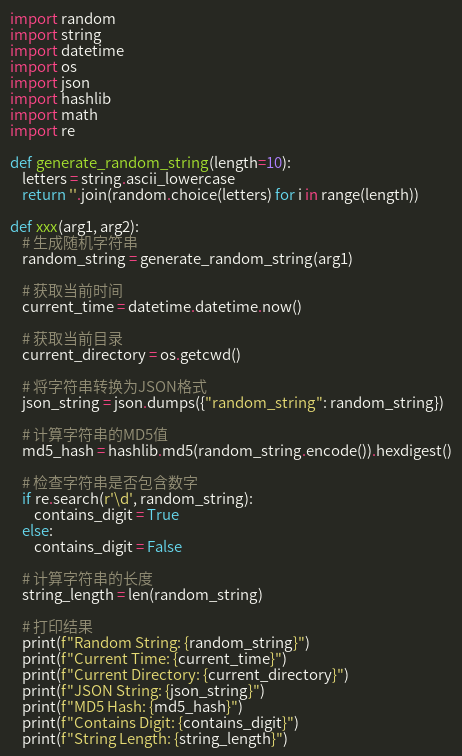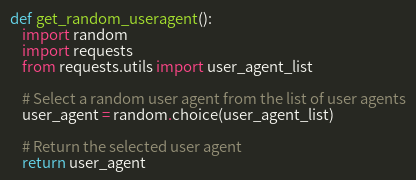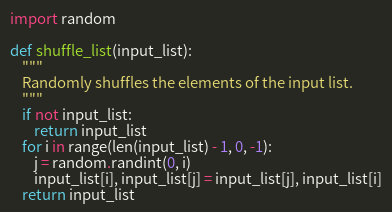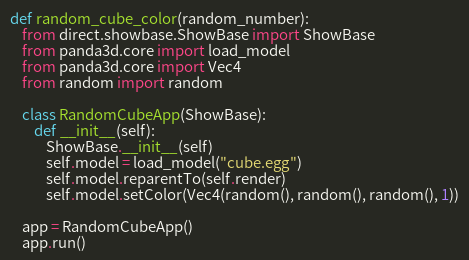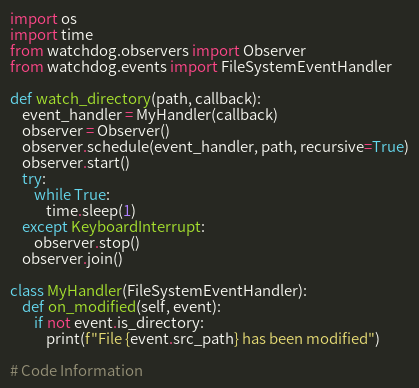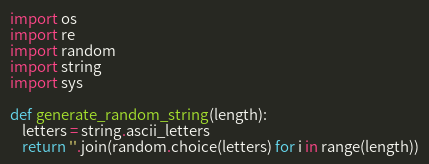Code introduction
This code first uses the datetime module to get the current timestamp, then uses the random and string modules to generate a random string. Then, it uses the hashlib module to perform a SHA-256 hash on the timestamp and random string to generate a hash value. Finally, it uses the json module to convert the timestamp, random string, and hash value into a JSON format and write it to a file, then copy the file to a new directory, run a subprocess to get the Python version, and finally delete the original file.
Technology Stack : datetime, random, string, hashlib, json, shutil, subprocess, sys
Code Type : Function
Code Difficulty : Intermediate
import random
import string
import datetime
import hashlib
import json
import os
import shutil
import subprocess
import sys
def generate_random_string(length=10):
"""Generate a random string of a given length using the string module.
Args:
length (int): The length of the random string to generate.
Returns:
str: A random string of the specified length.
"""
return ''.join(random.choices(string.ascii_letters + string.digits, k=length))
def xxx(arg1, arg2):
# Create a timestamp
timestamp = datetime.datetime.now().strftime("%Y%m%d%H%M%S")
# Generate a random string
random_str = generate_random_string(8)
# Create a SHA-256 hash of the timestamp and random string
hash_object = hashlib.sha256((timestamp + random_str).encode())
hex_dig = hash_object.hexdigest()
# Create a JSON object with the timestamp, random string, and hash
data = {
"timestamp": timestamp,
"random_string": random_str,
"hash": hex_dig
}
json_data = json.dumps(data, indent=4)
# Write the JSON data to a file
with open("output.json", "w") as file:
file.write(json_data)
# Copy the file to a new directory
shutil.copy("output.json", "backup")
# Run a subprocess to print the Python version
version = subprocess.check_output([sys.executable, "--version"])
print(version.decode())
# Remove the original file
os.remove("output.json")

